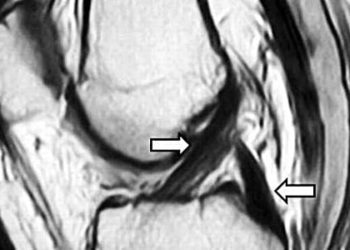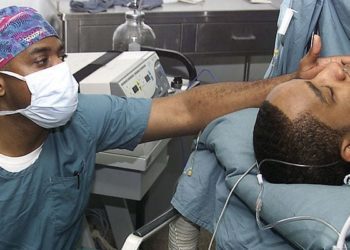Paravertebral blocks reduce postoperative opioid use in children undergoing cardiac surgery
1. Paravertebral blocks significantly reduced early postoperative opioid use and pain compared to wound infiltration in children undergoing thoracotomy for cardiac surgery.
Evidence Rating Level: 1 (Excellent)
Postoperative pain management remains a challenge in pediatric cardiac surgery, particularly following thoracotomies, where opioid use can delay recovery and increase complications. Paravertebral blocks (PVB) have been shown to provide effective analgesia in adults but their benefit in children is less established. This double-blind, randomized controlled trial compared unilateral PVB to local wound infiltration with ropivacaine in 100 children aged 6–14 undergoing thoracotomy for congenital heart defect repair. The primary outcome was 24-hour postoperative sufentanil consumption. Secondary outcomes included pain scores (Faces Pain Scale-Revised), opioid use incidence, and time to opioid requirement. Children receiving PVB had significantly lower opioid consumption (0.3±0.4 µg/kg vs 0.6±0.5 µg/kg, p = 0.004) and reduced pain scores at 6, 12, and 18 hours postoperatively, with the greatest benefit at 6 hours (1.7 vs 3.3, p < 0.001). Time to pain score ≥4 was also delayed (11 vs 5 hours, p = 0.001). No significant differences were observed in ICU stay, hospitalization, mechanical ventilation duration, or adverse events. These findings indicate that while PVB did not accelerate overall recovery, it provided effective early analgesia with reduced opioid need and minimal risk.
Click to read the study in BMJ
Image: PD
©2025 2 Minute Medicine, Inc. All rights reserved. No works may be reproduced without expressed written consent from 2 Minute Medicine, Inc. Inquire about licensing here. No article should be construed as medical advice and is not intended as such by the authors or by 2 Minute Medicine, Inc.









